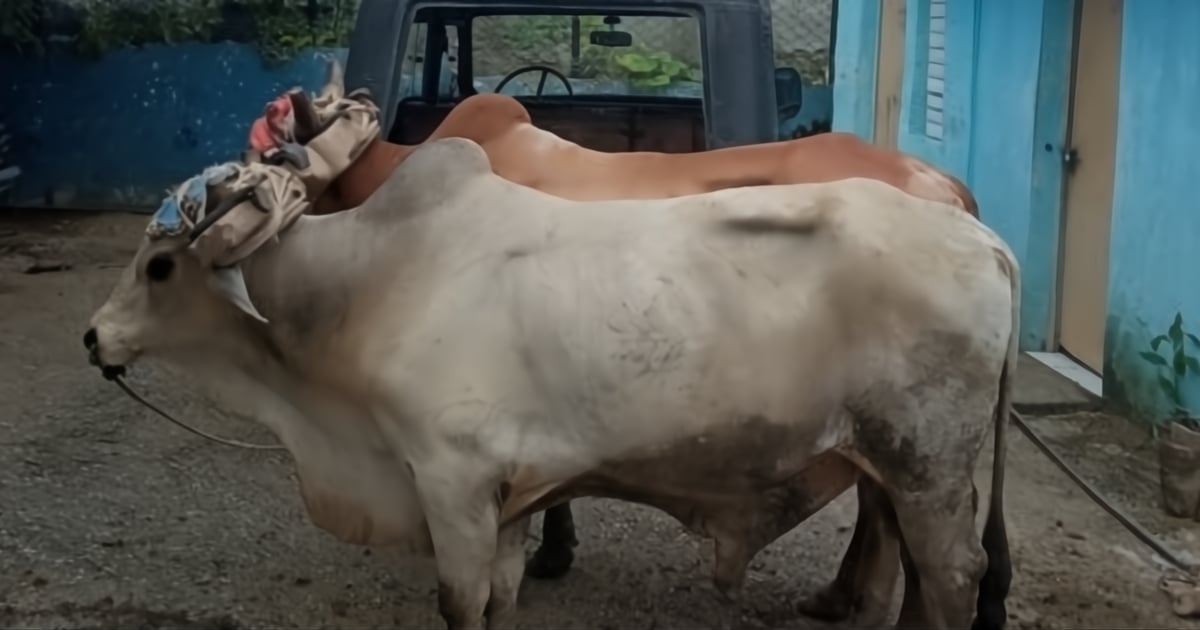In the town of Songo-La Maya, located in Santiago de Cuba, police authorities successfully recovered two oxen that were stolen and on the verge of being illegally slaughtered. This intervention was triggered by a complaint filed by the animals' owners, who reside in Matahambre, as reported by the pro-government Facebook page "Héroes del Moncada."
Local residents observed the swift movement of police patrol cars through the municipality's streets, which piqued their curiosity. It was later confirmed that law enforcement had arrived at a house where they discovered the two oxen, along with packages of meat that allegedly originated from a previous illegal slaughter.
The rescued animals were returned to their rightful owners, while authorities continue to investigate to identify those responsible for this crime, as stated by the regime-affiliated profile. This operation was part of the "National Exercise for the Prevention and Confrontation of Crime, Corruption, Illegal Activities, and Social Indiscipline," led by the ruling head, Miguel Díaz-Canel.
Within this framework, Cuba has implemented various actions aimed at projecting an image of a regime dedicated to resolving the country's primary issues. Despite these efforts, the limited access Cubans have to beef and its high price in currency collection stores ensure a persistent market for this product.
Crimes related to cattle in Cuba, which the regime claims severely impact the economy and food security, have involved over 9,000 individuals so far this year, according to figures presented by Colonel Manuel Valdés Brito, head of the Confrontation Body of the Technical Investigation Directorate (DTI) of the Ministry of the Interior (MININT).
This topic was discussed on the television program "Hacemos Cuba" last November, where participants included Mayra Cruz Legón, legal director of the Ministry of Agriculture, and Yoel Palmero Meneses, a member of the National Bureau of the National Association of Small Farmers (ANAP).
Additionally, in October, the official newspaper Granma reported that a total of 1,615 Cuban citizens had been sanctioned in 2024 for activities associated with the illegal slaughter of cattle and trafficking of their meat.
Key Issues in Cuba's Cattle Crime
What prompted the police intervention in Songo-La Maya?
The police intervention was prompted by a report from the owners of the stolen oxen, residing in Matahambre, which led to the recovery of the animals.
How does the Cuban regime view cattle-related crimes?
The Cuban regime views cattle-related crimes as having a severe impact on the economy and food security, involving over 9,000 individuals this year alone.
Why is there a persistent market for beef in Cuba?
The persistent market for beef is due to the limited access and high cost of beef in Cuba's currency collection stores.
